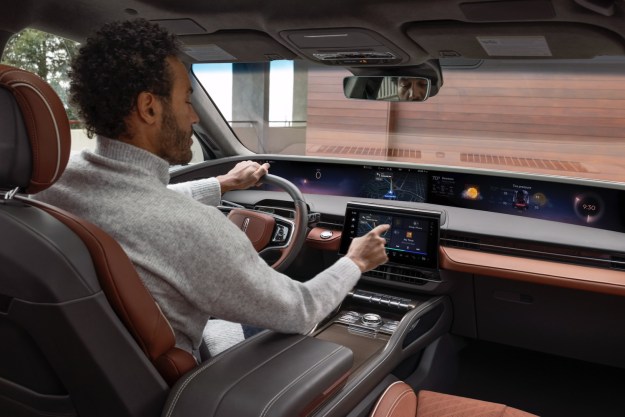A Welsh tech startup named Riversimple has introduced an experimental hydrogen-powered city car designed to be simple, efficient, affordable, and light.
Updated 02-22-2016 by Ronan Glon: Added more technical specifications.
Called Rasa, the highly aerodynamic two-seater was drawn by Chris Reitz, the man who helped pen the retro-chic Fiat 500. It weighs under 1,200 pounds thanks in part to a monocoque carbon fiber chassis that tips the scale at just 88 pounds without anything bolted to it, and body panels made out of composite materials. Riversimple is familiar with weight-saving measures because its research and development team includes engineers who come from the world of Formula 1.
Accessed via gullwing doors, the cabin is refreshingly simple and uncluttered. It features a three-spoke steering wheel, two seats, a pod that houses a pair of gauges, a dash-mounted screen framed by buttons, and not a lot else. Exposed carbon fiber emphasizes the car’s ultra-light construction. Riversimple told Digital Trends that the prototype doesn’t have a trunk, but the production model will boast roughly six cubic feet of storage.
Hydrogen stored in a tank mounted behind the passenger compartment is converted into electricity by an 8.5-kw, 11-horsepower fuel cell and sent to four in-wheel electric motors each rated at 125 pound-feet of torque. A brake energy recuperation system captures the kinetic energy that’s generated when the car brakes and transfers it to a bank of 120 lithium-hybrid supercapacitators, a system that’s similar in concept to the one found on Toyota’s Le Mans racer. With a capacity of 1.9MJ, the supercapacitors send the energy back to the motors when the car accelerates again. In theory, the prototype has a 300-mile range while emitting nothing but water, and it returns the equivalent of a little over 260 mpg. However, it has a top speed of just 60 mph.
Riversimple stresses the Rasa is fully street-legal because it was developed to comply with European safety regulations. If everything goes according to plan, the startup will build an initial batch of 20 cars that will be put in the hands of a carefully selected group of customers as part of a pilot program. Regular production is scheduled to kick off in Wales in 2018, but you’ll never be able to buy one.
Instead, motorists will pay a fixed monthly fee that covers the cost of using the car, maintenance, insurance, and hydrogen. The fee hasn’t been set yet, though Riversimple promises its car won’t be more expensive to own than a conventional, gasoline-burning model. The project is as ambitious as it sounds, but it’s promising enough that Riversimple earned a £2 million (roughly $2.9 million) grant from the Welsh government to develop the Rasa.
Editors' Recommendations
- Tesla to begin production on new, more affordable models
- Don’t let the gimmicks fool you. The Ioniq 5 N is a serious track car
- Microsoft’s next event could reveal the Surface Pro we’ve been waiting for
- Tesla Autopilot vs. full self-driving: What’s the difference?
- How to add Bluetooth to an older car




